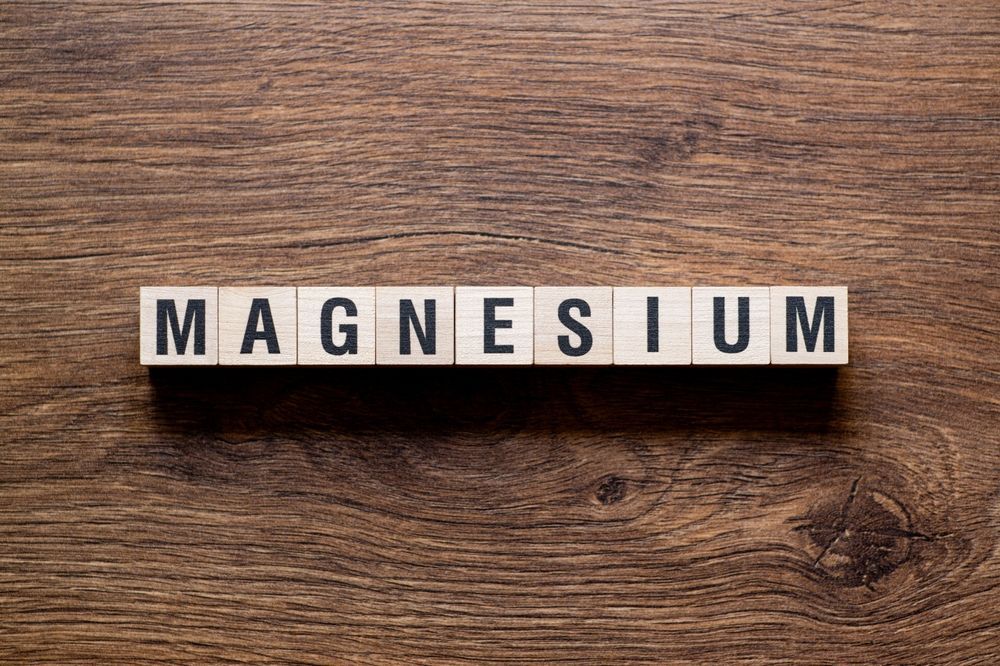Magnesium: Key to Muscle Recovery and Relaxation Explained

Magnesium is often overlooked in discussions about health and nutrition, yet it plays a crucial role in maintaining various bodily functions, particularly in muscle recovery and relaxation. This article will delve into the importance of magnesium, its effects on muscle health, and how to ensure adequate intake for optimal performance.
Understanding the Role of Magnesium in the Body
The Importance of Magnesium for Overall Health
Magnesium is an essential mineral that supports over 300 biochemical reactions in the body. It helps regulate muscle and nerve function, blood sugar levels, and blood pressure. Additionally, it is vital for the production of protein and bone development, making it crucial for overall health.
Without sufficient magnesium, individuals may experience various health issues, including fatigue, muscle cramps, and abnormal heart rhythms. This mineral is foundational for maintaining energy levels and performing daily activities effectively. Moreover, magnesium plays a significant role in mental health, with studies suggesting that adequate magnesium levels may help reduce the risk of depression and anxiety. It is involved in the regulation of neurotransmitters, which are chemicals that transmit signals in the brain, further highlighting its importance in maintaining a balanced mood and cognitive function.
How Magnesium Interacts with Other Nutrients
The effectiveness of magnesium in the body is amplified when it works in concert with other nutrients. For example, calcium and magnesium share a reciprocal relationship. While calcium is essential for muscle contraction, magnesium facilitates muscle relaxation. A balanced intake of both minerals is vital for optimal muscle function.
Furthermore, vitamin D plays a critical role in enhancing magnesium absorption in the digestive tract. Thus, ensuring sufficient levels of vitamin D can help improve magnesium utilization in the body. In addition to vitamin D, the presence of dietary fiber can also influence magnesium absorption. Foods rich in fiber, such as whole grains, nuts, and leafy greens, not only provide magnesium but also promote a healthy digestive system, which is essential for the optimal absorption of various nutrients. This interconnectedness among nutrients underscores the importance of a well-rounded diet to support overall health and well-being.
The Connection Between Magnesium and Muscle Function
Magnesium's Impact on Muscle Recovery
After intense physical activity, muscles undergo micro-tears, a process that requires proper nutrition for recovery. Magnesium assists in repairing muscle fibers by promoting protein synthesis. This essential mineral also helps reduce inflammation and soreness, allowing for a quicker return to peak performance.
Moreover, magnesium is pivotal in energy production, which is crucial during recovery periods. Low magnesium levels can lead to fatigue post-exercise, indicating the need for adequate replenishment after physical activities. In addition to its role in energy metabolism, magnesium plays a significant part in the synthesis of ATP (adenosine triphosphate), the primary energy carrier in cells. This means that when magnesium levels are sufficient, the body can efficiently produce and utilize energy, which is vital not only for performance but also for effective recovery.
Furthermore, magnesium-rich foods, such as leafy greens, nuts, and whole grains, can be easily incorporated into a balanced diet, making it simpler for athletes and fitness enthusiasts to meet their magnesium needs. Supplementing with magnesium may also be beneficial, particularly for those engaged in rigorous training or those who have dietary restrictions that limit magnesium intake.
The Role of Magnesium in Muscle Relaxation
Muscle relaxation is just as critical as contraction. Magnesium acts as a natural relaxant, helping to alleviate muscle tension. By regulating neurotransmitters that send signals through the nervous system, magnesium helps prevent muscle spasms and cramps, promoting a sense of calm and well-being.
Moreover, adequate magnesium levels can improve sleep quality, which further aids in muscle relaxation and recovery after strenuous exercise. A full night's rest allows the body to heal and regenerate, underscoring the importance of magnesium in overall wellness. Sleep is a time when the body undergoes significant repair processes, including muscle recovery, and magnesium's role in enhancing sleep quality can lead to better performance outcomes.
Additionally, magnesium's calming properties extend beyond just muscle relaxation; they also contribute to mental well-being. Stress can lead to muscle tension and discomfort, creating a cycle that hinders recovery. By supporting a relaxed state, magnesium can help mitigate stress responses, allowing athletes to maintain focus and composure during both training and competition. This holistic approach to muscle function emphasizes the interconnectedness of physical and mental health, illustrating why magnesium is often referred to as a key player in athletic performance and recovery strategies.
Magnesium Deficiency and Its Effects on Muscles
Symptoms of Magnesium Deficiency
Magnesium deficiency can manifest in several ways, often beginning with mild symptoms. Common signs include muscle cramps, twitches, and general muscle weakness. As deficiency worsens, individuals may experience increased fatigue, irritability, and anxiety.
Prolonged deficiency can lead to more serious health issues. It is essential to address magnesium deficiency early to prevent further complications.
Long-Term Consequences of Low Magnesium Levels
If left unaddressed, low magnesium levels can contribute to chronic conditions, including cardiovascular diseases, osteoporosis, and type 2 diabetes. In terms of muscle health, chronic low levels can hinder athletic performance and delay recovery, ultimately impeding physical progress.
Recognizing the signs of magnesium deficiency and taking steps to correct it is vital for maintaining both muscle and overall health.
Boosting Magnesium Intake for Better Muscle Health
Dietary Sources of Magnesium
Increasing dietary magnesium is an effective approach to ensure adequate intake. Numerous foods are rich in magnesium, including:
- Leafy green vegetables such as spinach and Swiss chard
- Legumes like black beans and lentils
- Nuts and seeds, particularly almonds and pumpkin seeds
- Whole grains such as brown rice and quinoa
- Fatty fish like salmon and mackerel
Incorporating these foods into your daily diet can help boost magnesium levels naturally, supporting muscle recovery and relaxation.
Magnesium Supplements: Pros and Cons
For individuals struggling to meet their magnesium needs through diet alone, supplements may be a viable option. Magnesium supplements come in various forms, including magnesium citrate, glycinate, and oxide, each with different absorption rates.
While supplements can help increase magnesium levels, it's essential to consult with a healthcare provider before starting any new supplement regimen. Excessive magnesium intake can lead to adverse effects, including diarrhea and abdominal cramping.
Debunking Myths About Magnesium and Muscle Health
Common Misconceptions About Magnesium
Numerous myths surround magnesium and its role in health. One common belief is that only athletes require extra magnesium. In reality, everyone can benefit from adequate magnesium for basic muscle function. Furthermore, many assume that all magnesium forms are equally effective, which isn't the case; some forms are better absorbed than others.
The Science Behind Magnesium and Muscle Function
Research consistently demonstrates that magnesium plays an integral role in muscle function. Studies have shown a direct correlation between magnesium levels and athletic performance, muscle recovery, and overall physical well-being. Adequate magnesium intake can enhance strength, flexibility, and endurance during physical activities.
In conclusion, understanding the importance of magnesium can dramatically impact muscle recovery and relaxation. By ensuring sufficient intake through diet or supplements, individuals can optimize their health and enhance their physical performance.






